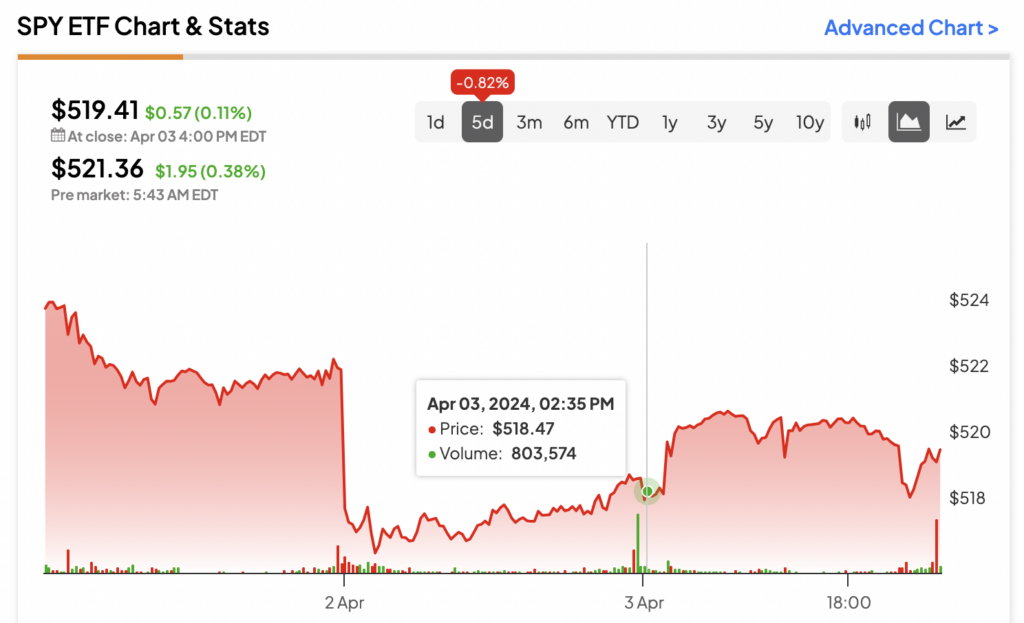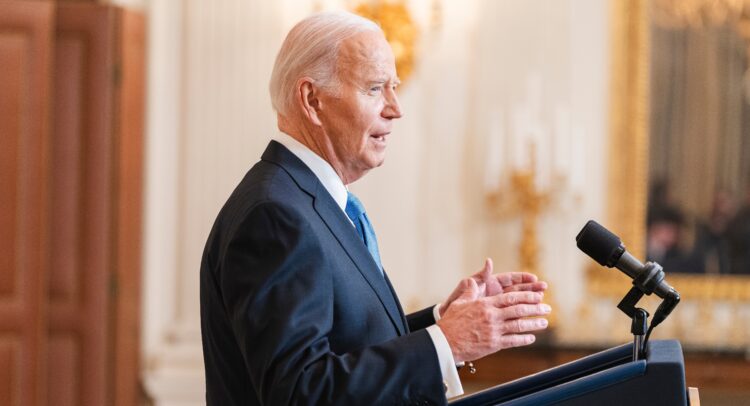In a significant meeting at the White House on April 3rd, President Biden and Senator Bernie Sanders joined forces to assert control over pharmaceutical pricing, potentially influencing stock market valuations within the sector.
Claim 50% Off TipRanks Premium
- Unlock hedge fund-level data and powerful investing tools for smarter, sharper decisions
- Stay ahead of the market with the latest news and analysis and maximize your portfolio's potential
Healthcare investors have long been concerned about potential price reductions enforced by the White House, a narrative that has persisted since Biden assumed office over three years ago.
Last year, Senator Sanders criticized the administration for its inaction on healthcare costs. During the meeting, Sanders highlighted that Americans are “sick and tired” of paying more than the rest of the world, a sentiment echoed by Biden who added, “You and I have been fighting this for 25 years,” referencing their mutual Senate tenure.
Medicare Drug Costs
The White House event was meant as a celebration and ramp-up of Medicare’s new ability to negotiate the cost of certain prescription drugs with pharmaceutical companies. The event also recognized new legal maximum costs for Medicare patients.
Stock Market Response
On the day of the meeting announcement, healthcare stocks, as measured by the iShares Healthcare Industry ETF (NYSE:IHE) dropped by 1.13% including after hours. We can see this evidenced in the chart below where the price fell after the announcement on April 3.

However, in comparison the market, as measured by the SPDR S&P 500 (NYSE:SPY), rose by 1.77%.

Although it would seem the action being taken would prolong the healthcare market slump, the current action may actually benefit healthcare investors. This benefit arises from the sector’s prolonged underperformance compared to the overall market.
The State of Uncertainty Can Now Fade
The long period of uncertainty surrounding the healthcare sector, fueled by investor concerns over negotiations on Medicare pricing, is coming to an end. Companies will gain clarity on expectations and analysts can adjust forecasts and ratings. This will allow investors to analyze the new information and determine value.
As the industry gains a better understanding of the regulatory landscape, investors can regain confidence in the long-term prospects of pharmaceutical companies. This increased confidence could lead to higher stock valuations and more stable market conditions.
Driving Innovation in the Pharma Industry
Making price controls mandatory could lead to more innovation and cost-consciousness in pharmaceutical companies. Larger companies might need to cut down on costs to stay profitable, which could help them find new ways to work more efficiently.
By focusing more on innovation due to these controls, it could be good for long-term investors in the pharmaceutical industry.
Key Takeaway
In short, the Biden-Sanders plan to reduce drug prices might appear negative for pharmaceutical stocks at first. However, investors could see that negotiating drug prices and enforcing strict controls could actually be better for valuations in the long run. These policies could lessen uncertainty, offering a clearer direction, which in turn could boost investor confidence and reinvigorate the industry’s commitment to innovation and cost-efficiency. Consequently, long-term investors in this field could gain from the Biden administration’s decisive measures.
















